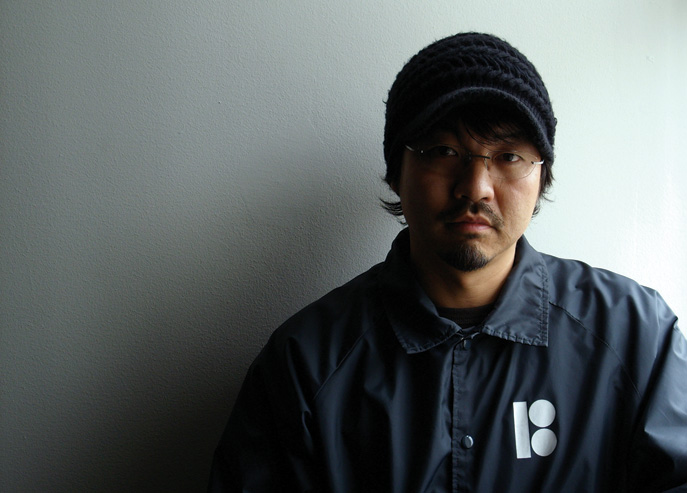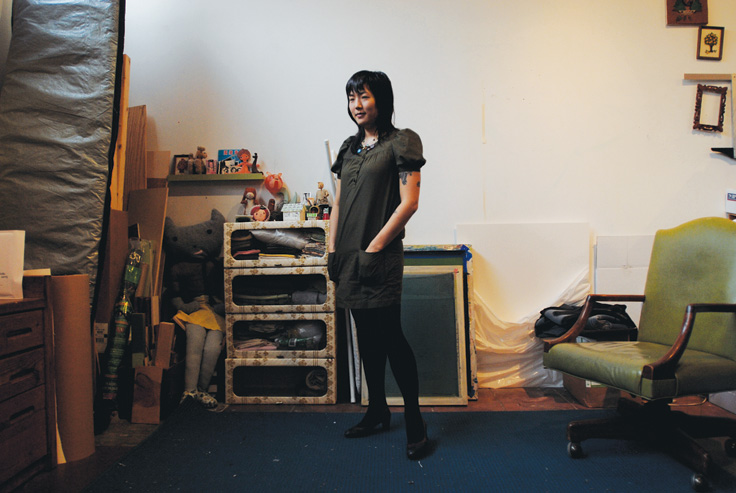By MiRi Park
Benson Lee is a busy man. After debuting his documentary “Planet B-Boy” at the Tribeca Film Festival last April, the seasoned world traveler has been in high demand. This past year, he’s traveled to China, Australia, Scotland, France and Japan, met with potential financial backers, sat in the studio with musicians and producers to create a new soundtrack and conducted marathon post-production sessions. All to prepare for the film’s nationwide release this month.
[ad#336]
I first met the Canadian-born Benson two years ago at a local b-boy jam in Queens, New York, and we’ve since become friends-in-arms. As a b-girl and someone who is academically documenting the b-boy scene, I’ve watched the journey Benson has made to bring the struggles of five b-boy crews from around the world to the big screen.
Benson, 38, grew up in a predominately Jewish, upper-middle class suburb of Philadelphia and says he fell in love with hip-hop after seeing Grandmaster Flash on TV.
“I never felt like I could really relate to the culture that was outside my home and also inside my home,” he recalls. “As a result, I used movies as my escape.”
He’d rent movies from the giant video rental store near his house, and can still remember being awed by the dancing in “Beat Street” and “Breakin,’” two films that spawned a budding passion for both hip-hop and filmmaking.
Benson moved to New York to attend the Fashion Institute of Technology, partly to appease his father, a contractor for women’s clothing who wanted him to follow in his footsteps, but mostly to escape his suburb. Benson experimented with everything the city had to offer, and soon learned that fashion was not his calling. He transferred to New York University as a marketing major, but found himself spending most of his time helping his roommate with film projects.
Burnt out from city life and looking for another change, he transferred to the University of Hawaii. There, he got involved with the film club and realized his calling. Rather than go to film school, he headed to France at the invitation of a friend.
“Of course my French wasn’t good enough to get a job, so I moved to London,” he says, laughing. There, with the help of financing from another friend, he wrote and directed his first film, “Miss Monday.” A feature about bulimia, alienation and the corporate culture of London, it premiered at Sundance in 1998 where it garnered a Special Grand Jury Prize for Best Actor. It opened to select theaters around the world in 1999 and played extensively on HBO.
[ad#336]
With his first successful project under his belt, Benson turned his attention back to the dance that enthralled him as a teen. In the time between his childhood and the new millennium, “b-boying” had gone global where the crowning achievement for b-boy crews was a shot at competing in the annual international tournament Battle of the Year (BOTY). In 2001, a Korean crew made it to the finals.
“One of the motivating factors for me to really dedicate my life to this project was that the Korean b-boy scene just suddenly exploded.”
Benson faced a new set of challenges as a documentary filmmaker: gaining access to the scene as an outsider and coming up with the budget to do it. He had to go through a series of “show-and-prove” with the subjects, organizers and funders. In 2005, Benson flew to Korea and met with b-boy promoters Charlie Shin and JohnJay Chon, known there as the driving force behind the popularity of the dance. Shin and Chon took him under their wing and guided him through the scene, introducing him to key figures in the scene like Cros1, founder and producer of the U.S.-based Freestyle Session (FSS), another annual international b-boy event.
At first denied access to BOTY, due to another documentary in the works, Benson flew to Germany to plead with the competition’s founder, Thomas Hergenrother. He reasoned that since not all films are guaranteed to make it to release, and that no two filmmakers would have the same take on the subject anyway, why not let both of them film? Hergenrother agreed, and production on “Planet B-Boy” began in 2005.
With a tiny production crew of three, Benson attended BOTY elimination events in Korea, Japan, France and Los Angeles that summer.
“That’s when I really discovered hip-hop, when I went around the world and I saw how these kids were just using this … code of honor,” he says.
Following the members of each crew around their home country, he was touched by how individual experiences and struggles influenced each dancer’s style. “It’s one thing to see a dancer. It’s another to know a dancer, and then watch his or her work on the dance floor.”
Benson’s sensitivity to this parlayed into the way each story is told. There is the Korean son looking for his father’s approval, a young boy in France dealing with his family’s racism, and a Las Vegas dancer searching for his big break.
The struggles of Benson’s subjects, particularly the storyline of one b-boy who had just become a father, often reflected his own life. Benson’s son Alexis was born just before production of “Planet B-Boy” began, and he felt a paternal need to provide for his family with a steady income, something that was impossible when trying to finance the movie independently.
[ad#336]
“The struggle to make this doc was just as emotionally draining as the struggle of my subjects,” he says. “That’s why this project is really special to me, and I’ll never forget it. It was the most important project I could have made at this point in my life to mark what I stand for. Regardless if this project makes money or not, I will never be more proud of the achievement of seeing this make it to the screen.”
Benson is currently working on a feature film adaptation of “Planet B-Boy” and hopes that both versions will touch audience members.
“You hope that when they leave the theater, that they maybe see that there’s a paradigm shift on something like hip-hop. I made this movie demanding that there be more respect for hip-hop, that it’s not just a trend, or about baggy clothes. … It’s a means of expressing social and cultural issues.”






